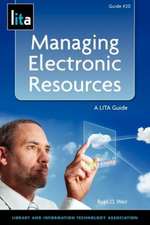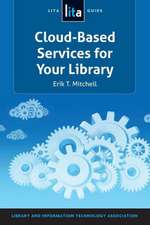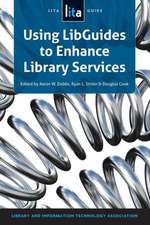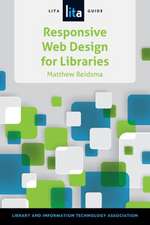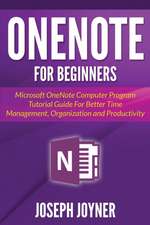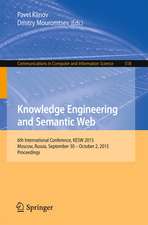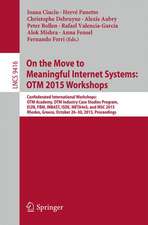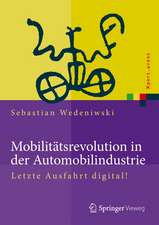Technology Education in School and Industry: Emerging Didactics for Human Resource Development: NATO ASI Subseries F:, cartea 135
Editat de Dietrich Blandow, Michael J. Dyrenfurthen Limba Engleză Paperback – 5 noi 2012
Din seria NATO ASI Subseries F:
- 20%
 Preț: 650.27 lei
Preț: 650.27 lei - 20%
 Preț: 668.55 lei
Preț: 668.55 lei - 20%
 Preț: 992.44 lei
Preț: 992.44 lei - 18%
 Preț: 1239.19 lei
Preț: 1239.19 lei - 20%
 Preț: 1922.81 lei
Preț: 1922.81 lei - 20%
 Preț: 654.37 lei
Preț: 654.37 lei - 18%
 Preț: 1234.00 lei
Preț: 1234.00 lei - 20%
 Preț: 709.78 lei
Preț: 709.78 lei - 20%
 Preț: 656.03 lei
Preț: 656.03 lei - 18%
 Preț: 1854.94 lei
Preț: 1854.94 lei - 20%
 Preț: 374.97 lei
Preț: 374.97 lei - 20%
 Preț: 991.94 lei
Preț: 991.94 lei - 20%
 Preț: 671.02 lei
Preț: 671.02 lei - 20%
 Preț: 1925.96 lei
Preț: 1925.96 lei - 20%
 Preț: 994.73 lei
Preț: 994.73 lei -
 Preț: 389.49 lei
Preț: 389.49 lei - 20%
 Preț: 657.99 lei
Preț: 657.99 lei - 20%
 Preț: 655.20 lei
Preț: 655.20 lei - 18%
 Preț: 1225.31 lei
Preț: 1225.31 lei - 18%
 Preț: 952.09 lei
Preț: 952.09 lei - 20%
 Preț: 332.06 lei
Preț: 332.06 lei - 20%
 Preț: 1284.47 lei
Preț: 1284.47 lei - 20%
 Preț: 644.81 lei
Preț: 644.81 lei -
 Preț: 395.85 lei
Preț: 395.85 lei - 18%
 Preț: 1221.07 lei
Preț: 1221.07 lei - 15%
 Preț: 643.34 lei
Preț: 643.34 lei - 20%
 Preț: 645.47 lei
Preț: 645.47 lei - 20%
 Preț: 1282.98 lei
Preț: 1282.98 lei - 20%
 Preț: 656.36 lei
Preț: 656.36 lei - 20%
 Preț: 1283.31 lei
Preț: 1283.31 lei - 20%
 Preț: 1924.15 lei
Preț: 1924.15 lei - 20%
 Preț: 362.24 lei
Preț: 362.24 lei
Preț: 336.86 lei
Preț vechi: 421.08 lei
-20% Nou
Puncte Express: 505
Preț estimativ în valută:
64.46€ • 67.48$ • 53.33£
64.46€ • 67.48$ • 53.33£
Carte tipărită la comandă
Livrare economică 05-19 aprilie
Preluare comenzi: 021 569.72.76
Specificații
ISBN-13: 9783642633935
ISBN-10: 3642633935
Pagini: 388
Ilustrații: XI, 372 p.
Dimensiuni: 155 x 235 x 20 mm
Greutate: 0.54 kg
Ediția:Softcover reprint of the original 1st ed. 1994
Editura: Springer Berlin, Heidelberg
Colecția Springer
Seria NATO ASI Subseries F:
Locul publicării:Berlin, Heidelberg, Germany
ISBN-10: 3642633935
Pagini: 388
Ilustrații: XI, 372 p.
Dimensiuni: 155 x 235 x 20 mm
Greutate: 0.54 kg
Ediția:Softcover reprint of the original 1st ed. 1994
Editura: Springer Berlin, Heidelberg
Colecția Springer
Seria NATO ASI Subseries F:
Locul publicării:Berlin, Heidelberg, Germany
Public țintă
ResearchCuprins
Official Opening and Welcome.- 1. Advanced Technology and Technology Education.- Industry productivity improvement techniques for education: A reverse technology transfer?.- Learning through apprenticeship.- New didactical concepts through the application of Flexible Learning Systems.- 2. Aspects of Identifying Key Competencies.- Identifying key competencies in specific occupational sectors for incorporation into vocational training programmes.- Inclusion of students with significant learning difficulties.- Didactical concepts for developing key qualifications.- 3. Advanced Technology Self-Learning Tools.- The DNA of advanced educational technology.- “Working with projects” stimulates basal aptitudes.- Technological literacy and humanization.- 4. Didactical Concepts for Advanced Technology.- Thought, language, and technology in school industry link projects.- Technology education: The rural context factor.- Implications of cognitive science for technological problem solving.- 5. Principles of Engineering Courses and Apprenticeship Entry Requirements.- Learning in technical work systems - industrial training models.- Principles of Engineering course: school and industrial collaboration.- Creativity at work: implications for education about work.- 6. Design Methodology and Theory-Practice Links.- Interrelations between design education, design practice, design research, design knowledge.- The elements of technology for education.- Design methodological analyses as a tool for learning about technological developments in industrial settings.- 7. Advanced Technology and Integrative Situations.- The Goals of Mathematical Olympiad and Changing Society in Transition to the Market Economy.- A model for integrated mathematics, science and technology education staffdevelopment.- The role of universities in the transition to a market economy and in regional development.- Using advanced technology to enhance teaching, learning and assessment.- Final Reports of the Working Groups.- Collaboration between educational institutions and the world of work: future directions.- Characteristics of advanced educational technology.- Disciplinary, interdisciplinary and multi-dimensional perspectives.- List of Participants.


